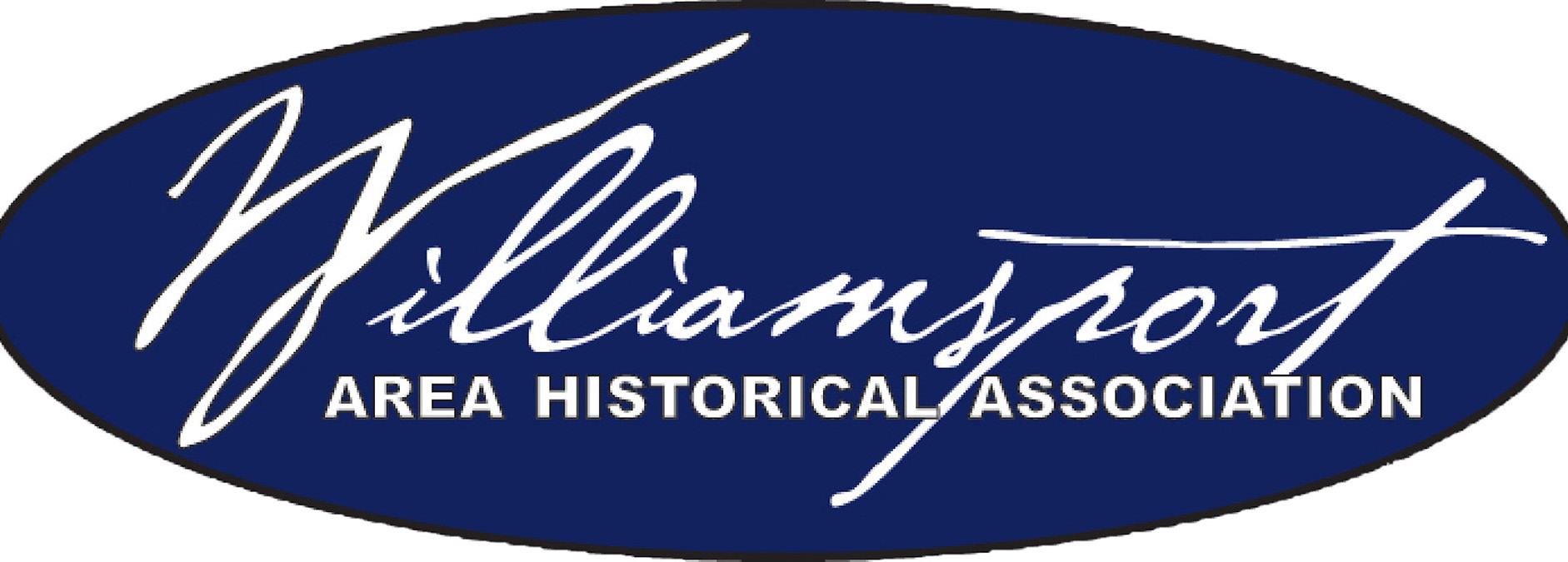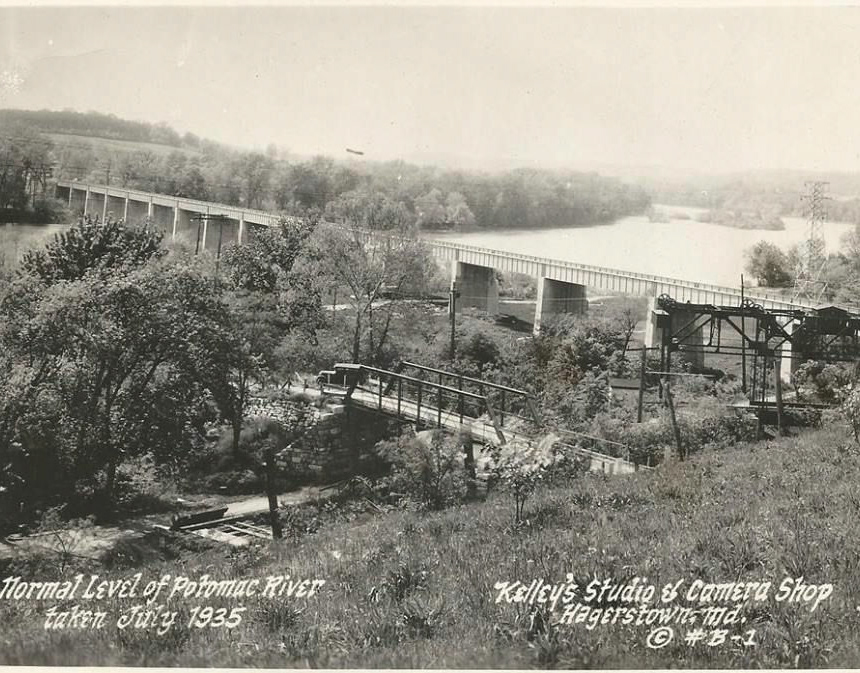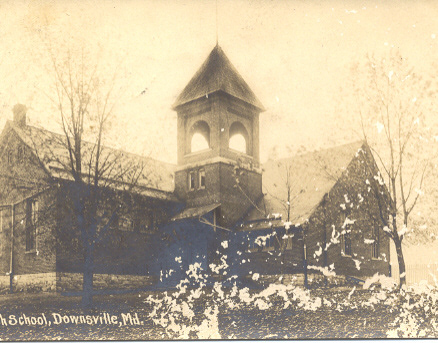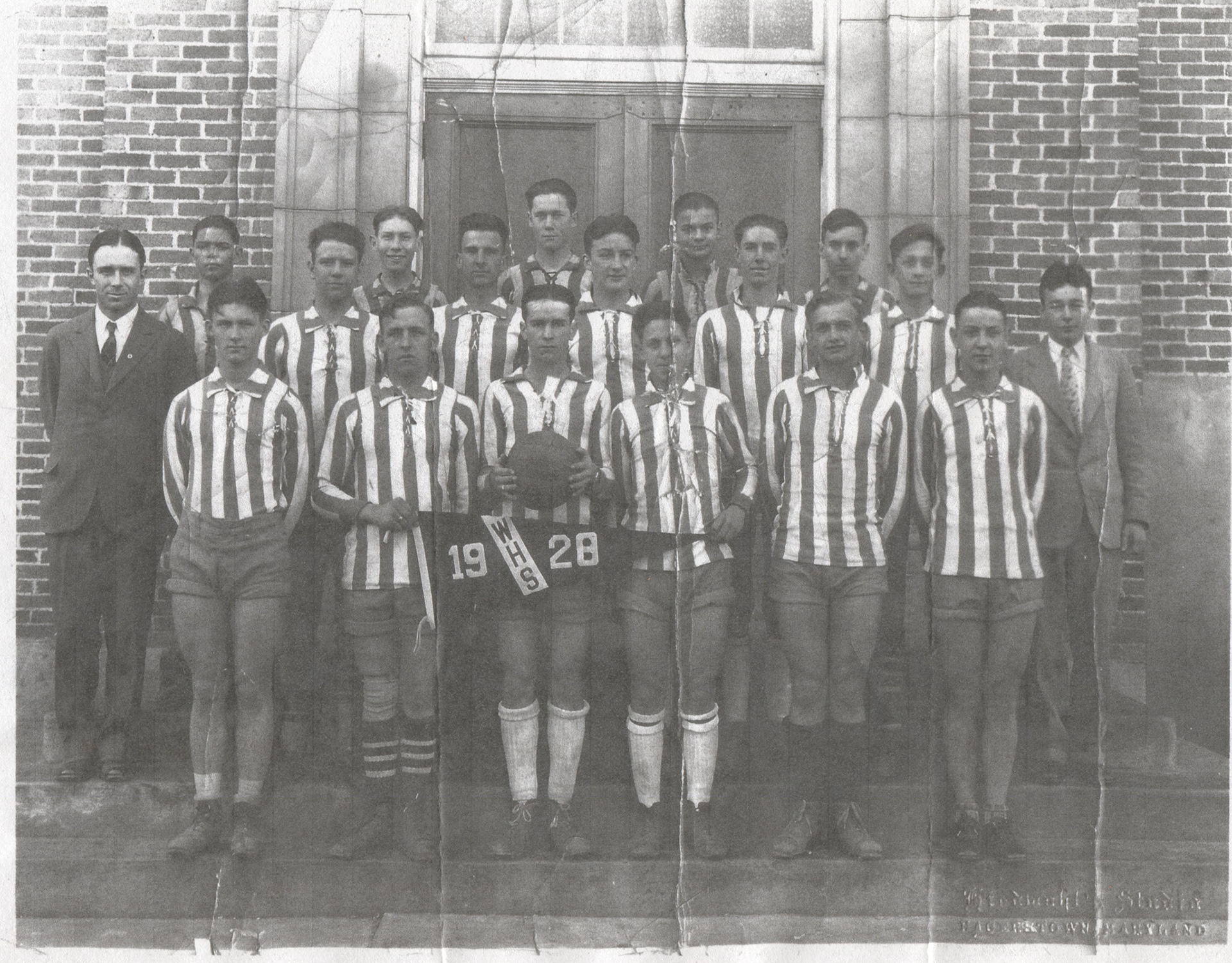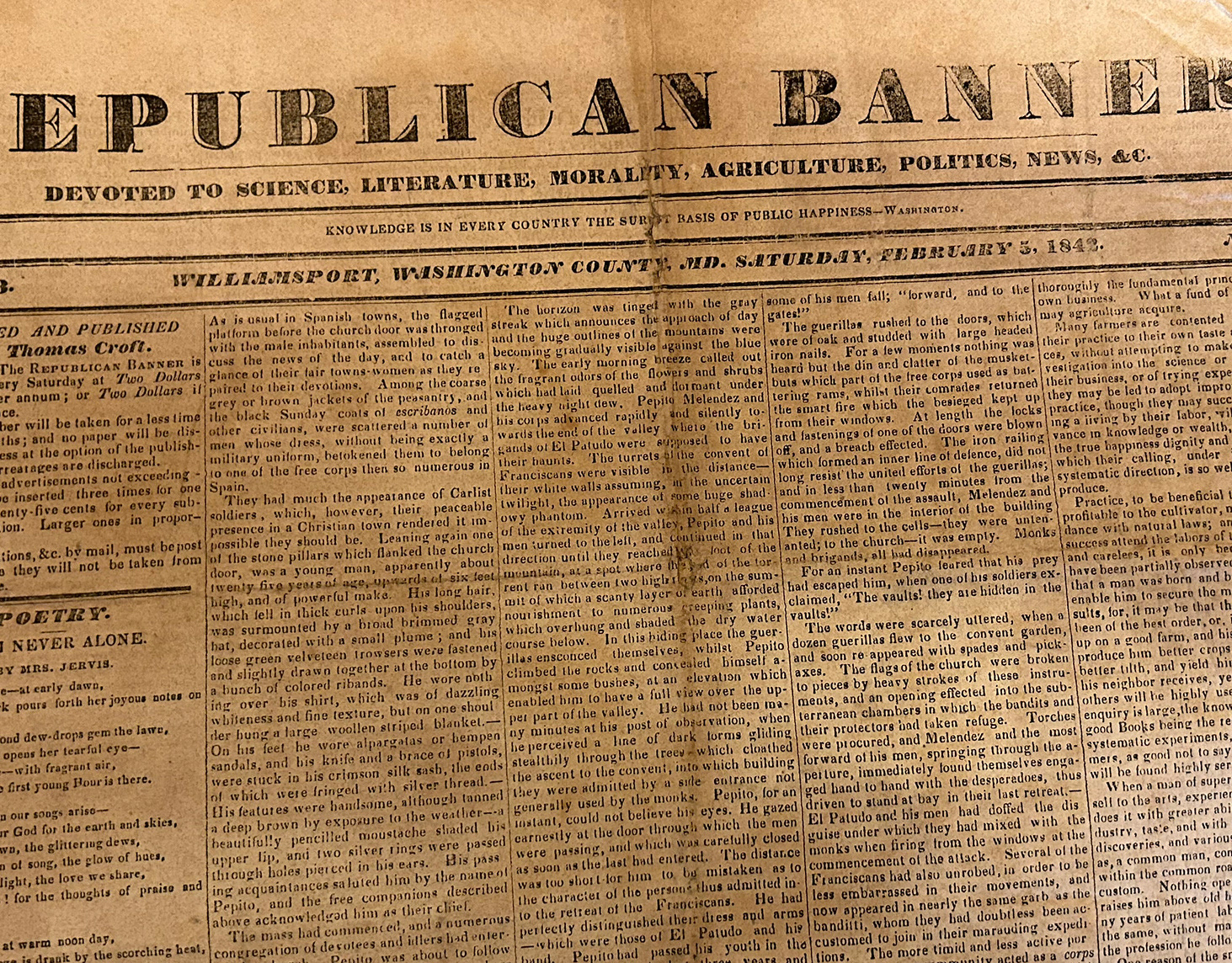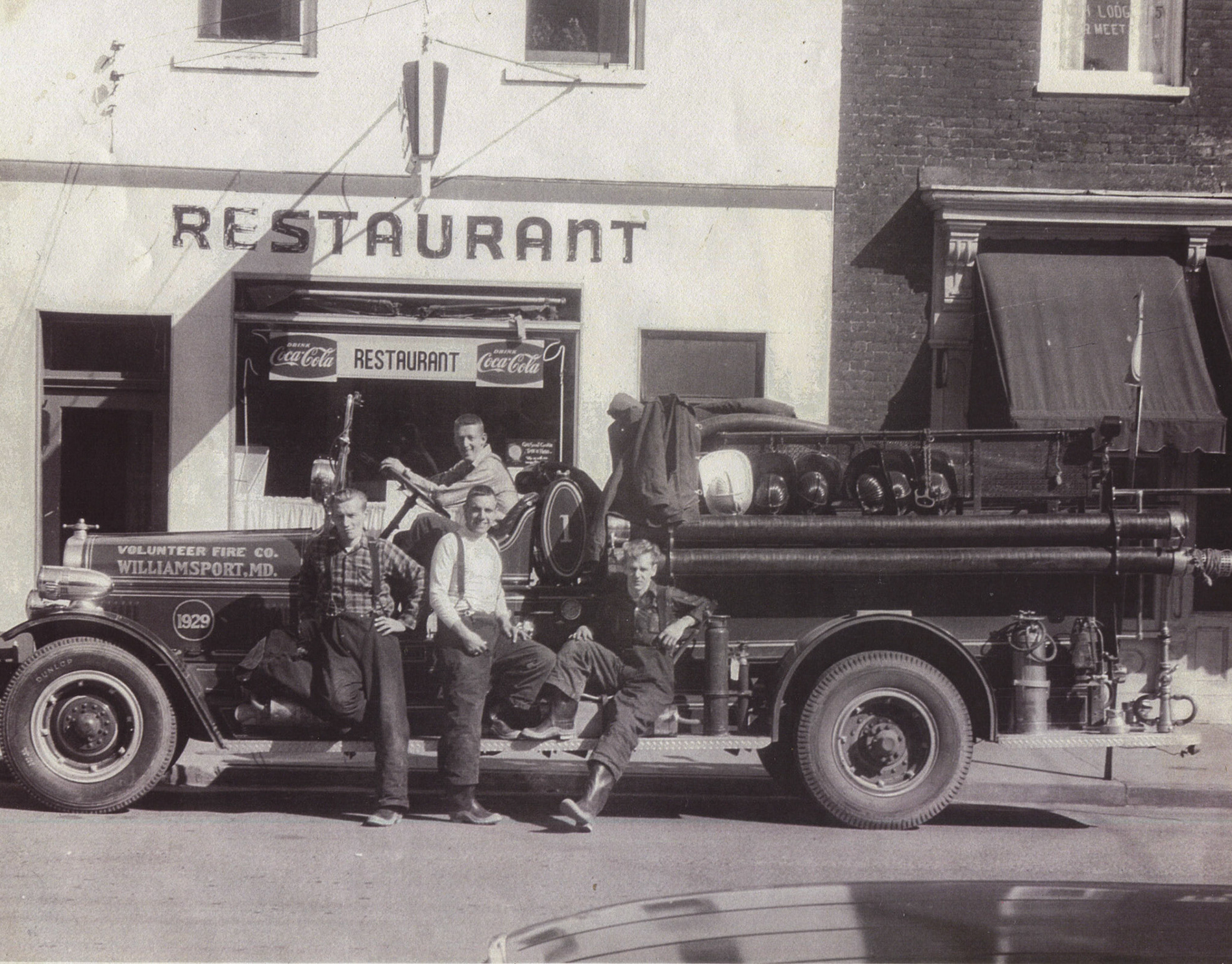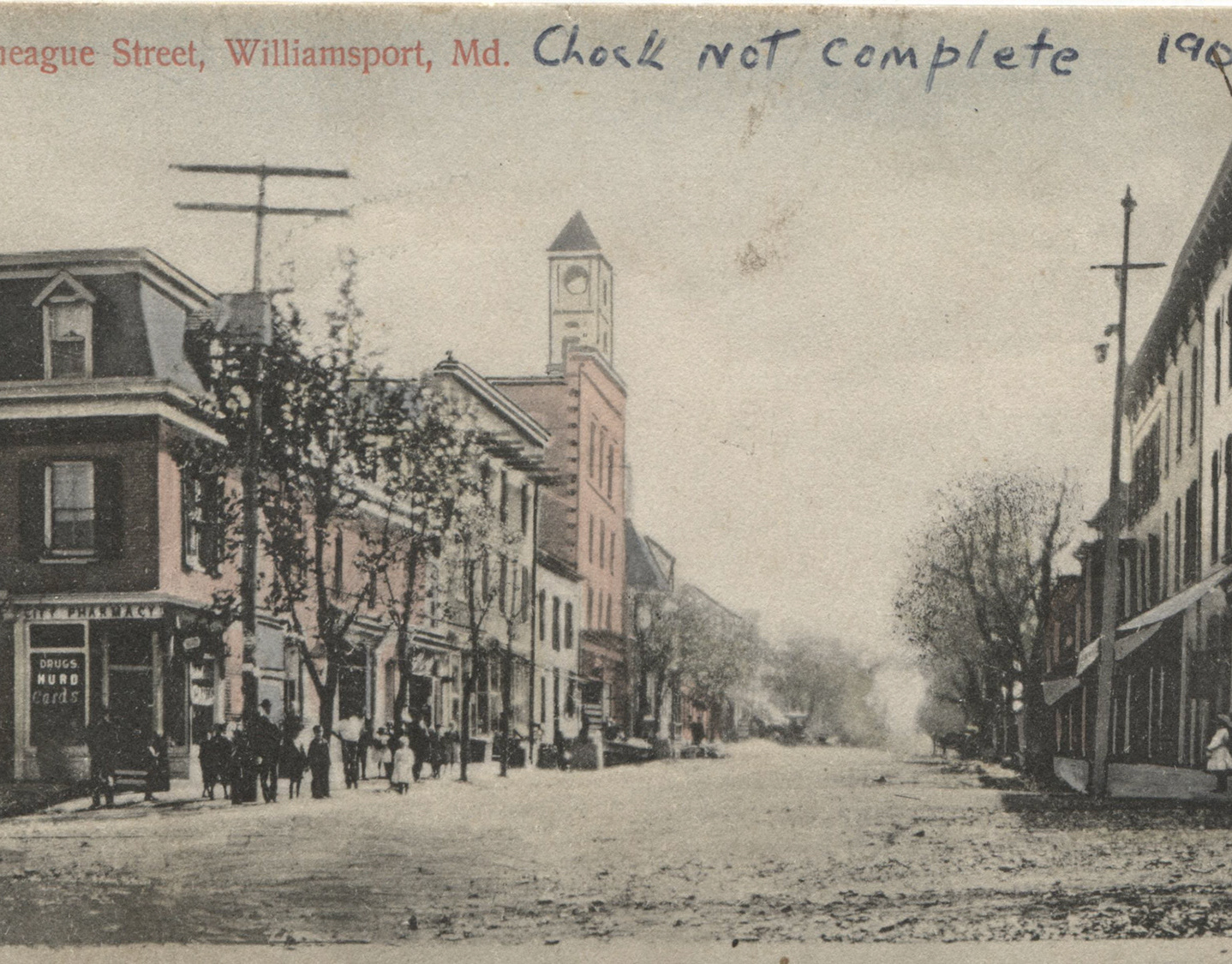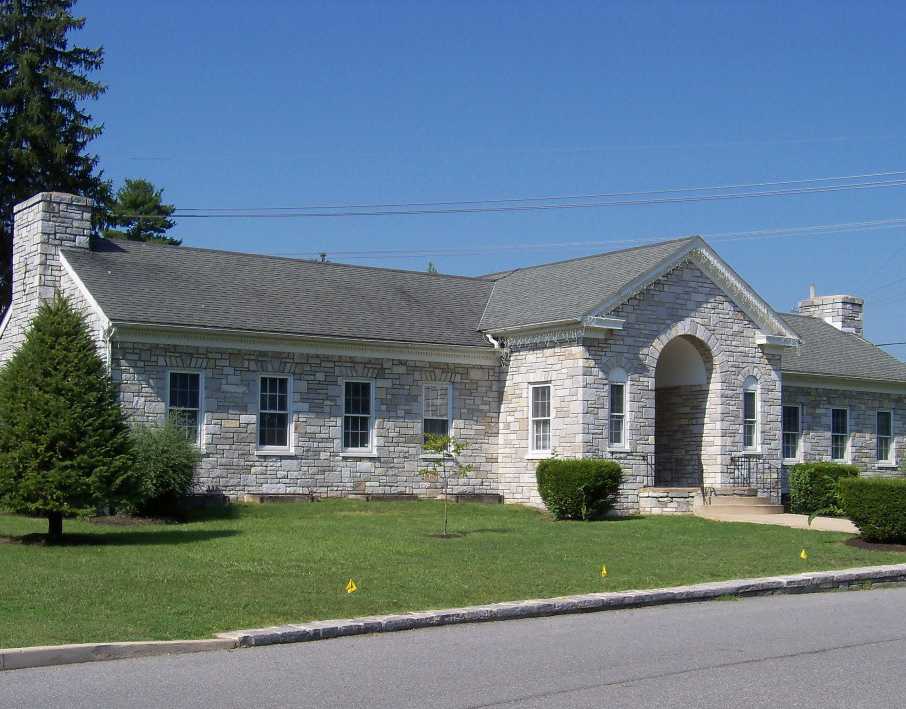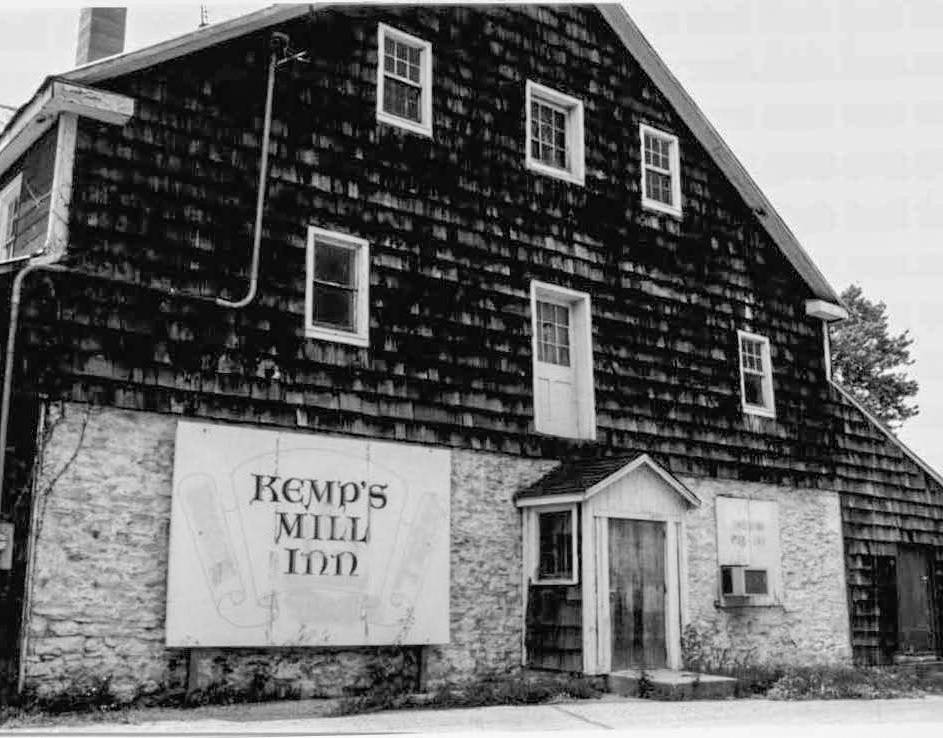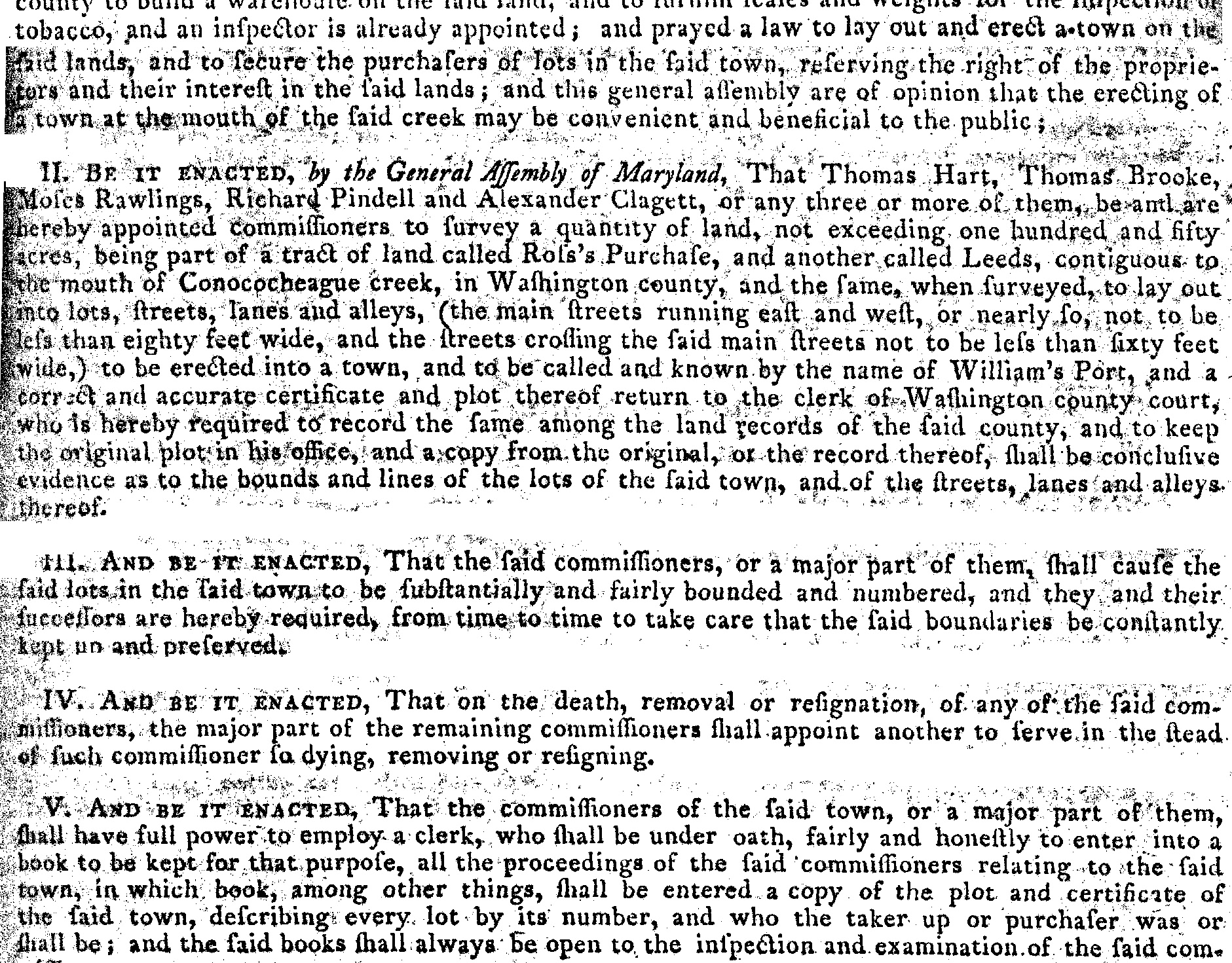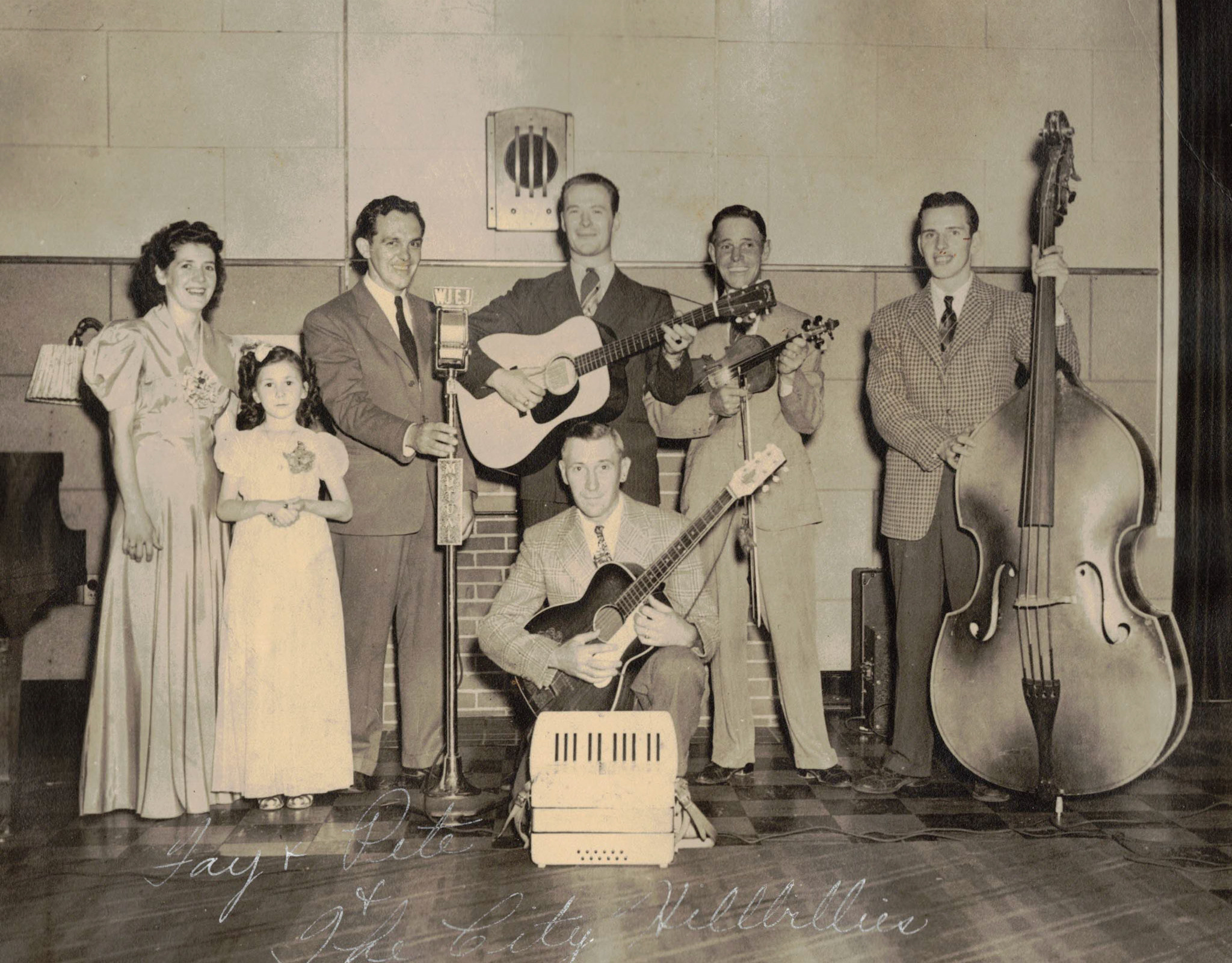Several affluent families in the Williamsport region owned slaves before the Civil War. However, as early as the 1840s, Artizan Street in Williamsport was home to numerous families of free black Americans, most of whom were laborers on the canal or engaged in trades such as blacksmithing and coopers.
Tentatively identified as Kenneth McKinney's Colored Jazz Band from West Virginia, there are several mentions of this well-known quartet playing at events in the 1930s and 1940s in the local area.
In May of 1870 the Washington County Commissioners purchased half of lot 101 in Williamsport and appropriated $400 for the construction of a school house to be used "for the education of freemen and children irrespective of race or color."
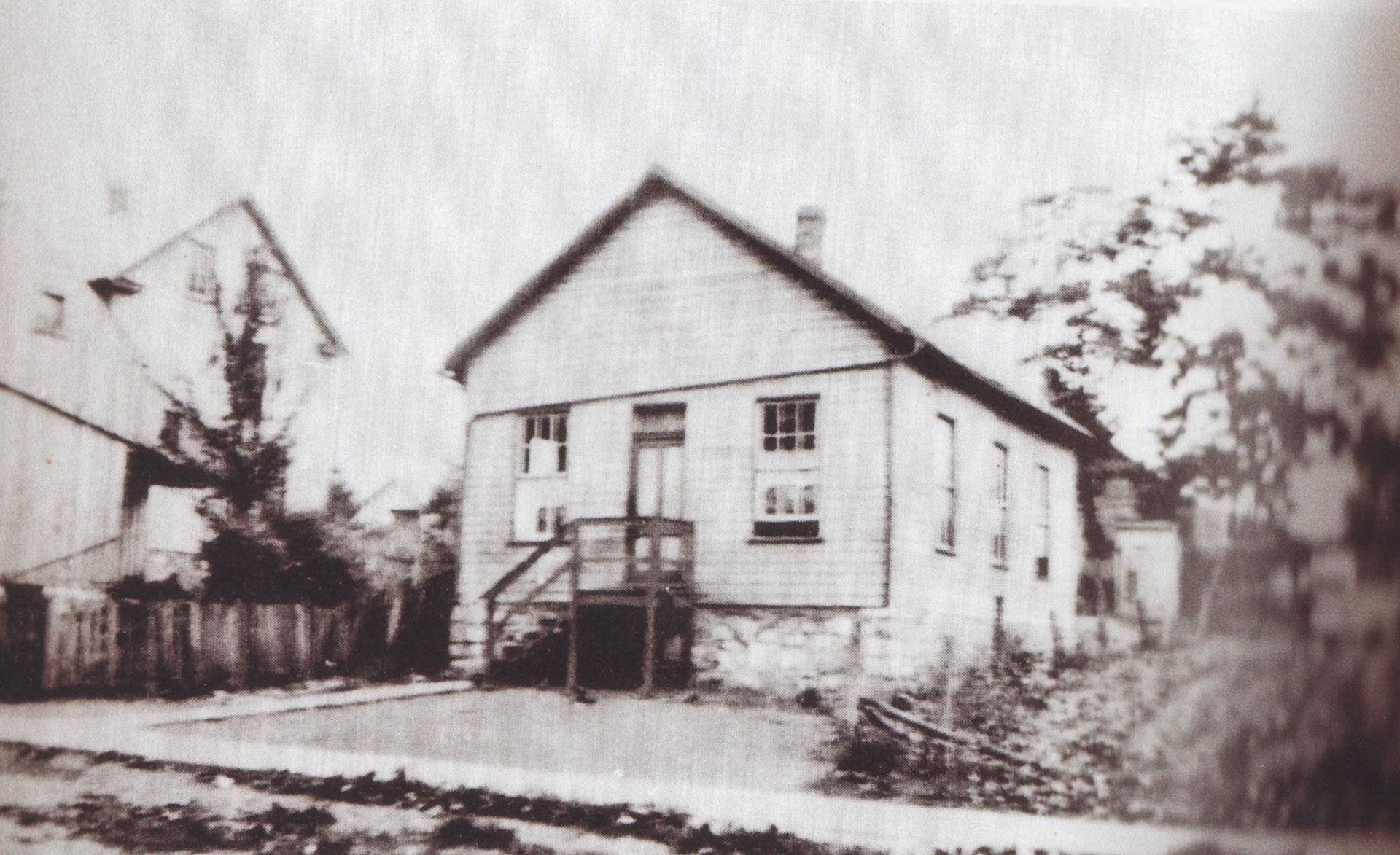
Lot 101, Williamsport (colored) E.D. 2 School
School for black children was located in the alley between East Church Street and East Frederick Street. Only the foundation remains. Circa 1800
John Kingston Taylor (1879-1934)
A leader in the black community of Williamsport, Kingston was the seventh and youngest child of Civil War veteran Charles P. Taylor and Elizabeth Taylor. He was born, lived, and died on Artisan Street.
For most of his life, Kingston worked as a butler and cook at Springfield Farm for the Humrichhouse Family. He was a school trustee for the Colored School at Williamsport and a part-time preacher at the Ashbury M.E. Church in Williamsport. He never married and is buried in River View Cemetery, Williamsport.
Excerpt from "Things we Like to Remember about Williamsport" author unknown:
"Kings" Taylor - leader of the negro congregation, unofficial mayor of that part of town, song leader, and cook extraordinary.
Kingston Taylor
If you are feeling life has handed you struggles, imagine being born into slavery, living through the American Civil War, and starting over as a free black man. Hercules "Hank, or Henry" Turner (1814-1899), a worthy and respected man, who bought his freedom and the freedom of two wives.
Excerpt from "Things we Like to Remember about Williamsport" author unknown:
But we are sure the high light of memory, to those who were privileged to hear them was the singing of Christmas carols and hymns by the negros of the local church led by Uncle Caesar Peters, a negro preacher from the deep south, who started the custom during the Civil War. It continued without interruption until some time during World War I. Through cold and snowy weather, the negros would march through the town on Christmas morning singing the hymns of praise. They would stop at every square, and kneel to pray, led by Uncle Caesar, and Mr. John Conley, their white class leader. Many were the children who lay wide-eyed and breathless in their warm beds, waiting to hear the negros sing at 4 o'clock on Christmas morning. When we heard the lovely voices singing "We Shall Be Like Him" and "We'll Arise In That Morning", we knew Christmas Day had really arrived. This is a memory that tugs at the Heartstrings.
Jimmy Tyler of Williamsport and his dog, about 1950
Easter Sunday 1942 step of Williamsport Memorial Library. JoAnne "Pickles" Nave [Burger], Frances Tyler, Jimmy Tyler (on lap), Lorraine Ardinger, and Doris Tyler
Excerpt from "Things we Like to Remember about Williamsport" author unknown:
The negro camp meetings in the Lock Woods (called Bush meetings), where the meals were cooked under the oak tree on cook stoves taken down for that purpose, and from where the singing of spirituals was clearly audible over most of the town.
Image: Negro Camp Meeting, wood engraving, 1872. Library of Congress
